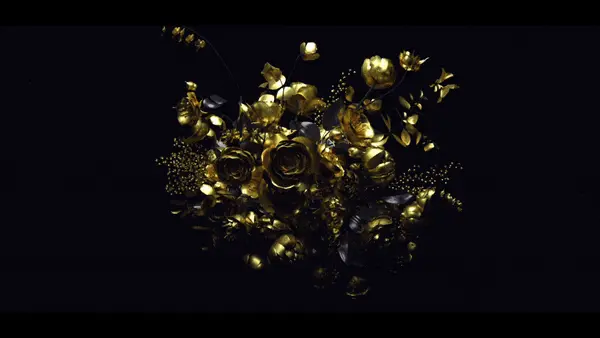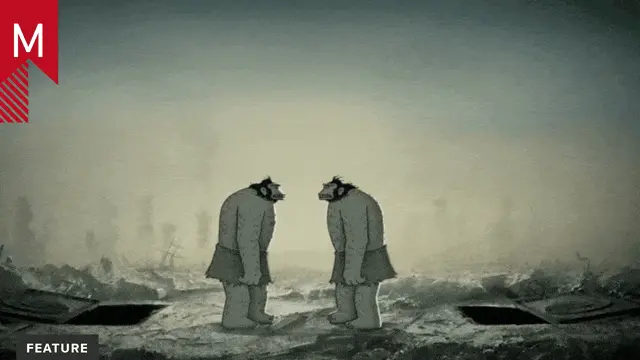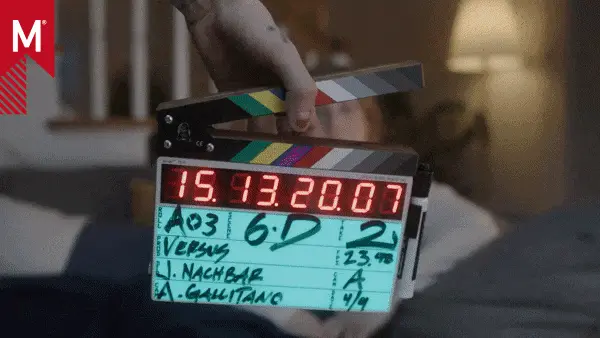
photo credit: Art of the Title
The Film Title Design Awards program is unique among the SXSW screenings in that it opens with a panel discussion. This year the all-star jury was composed of Ian Albinson of Art of the Title, Ben Radatz of MK12 (Stranger Than Fiction), Gareth Smith & Jenny Lee of Smith & Lee Design (Up in the Air), and Kurt Volk of Troublemaker Studios (Machete). Before the screening, the panelists discussed their process and some of their favorite past work.
When Do You Get Involved?
Ben Radatz: For most of the titles, we come in very early. We’ve read the script and are involved with how the film is progressing, which helps give us context as we’re putting together the sequence. There were a couple times where we weren’t sure what the final film was going to be. That’s a bit of a trial and error process, but you work through it until you find the right process that works for the film.
Kurt Volk: I mainly work for Robert Rodriguez, so i’m in the unique position of starting on the process really early and doing all the key art, photographing the actors, and designing the logos in addition to the titles. Sometimes we’ll be working on the titles and posters before a script is even written. I don’t necessary have the luxury of choosing what I work on, since I’m working on whatever is at the studio, but I consider it a great honor to make sure that the key art, title sequence, and all of the art associated with the film has a unified look and belong to the same family.
Gareth Smith: In a feature film, a title sequence can often run one and a half to two and a half minutes, which is a lot of the film up front that sets up the tone of your movie, so it’s important that it’s not being done at the last minute in post-production. Our favorite projects have involved the directors approaching us when they had the screenplay. With Jason Reitman, he gives us the screenplay and we have months to think about ways to integrate the title sequence into the film. For instance, with Juno, because we were able to plan it all out before they shot the movie, we were able to ask them to give us a couple shots from the film shoot.
Jenny Lee: On the other hand, when you work on a title sequence after everything has been shot, you have a chance to watch the film from beginning to end and get a sense of the film’s tone. You can pick up visual elements that develop into a motif for the sequence.
On the Limitations within Title Design
Gareth Smith: In the independent film scene, you don’t have to worry as much. But on a studio feature, every title in the sequence is based on the size of another title in the sequence. We’ve had instances where the main actor needs to have their title 75% size of the main title, or a person will need to have their name the average size of the rest of the crew.
Kurt Volk: The same thing happens with movie posters, where there’s contractual obligations that someone gets top billing. You’ll run into instances where an actor’s head has to be 80% of the size of another head. It’s not just making something that looks beautiful that everyone enjoys. It’s a challenge like everything else. But when you can push something through or get a waiver, there’s even more sense of accomplishment.
The panel was followed by a screening of the twenty finalists. The styles ranged from epic powerhouse pieces like Elastic’s Game of Thrones and Blur’s The Girl with the Dragon Tattoo to self-initiated projects like James Curran’s take on The Adventures of TinTin and Clemens Wirth’s Herbst.
I liked the mix of television and film titles, hopping from the live-action, comedic, world-building of Sarofsky Corp.’s Shameless to the pitch perfect design in Prologue Films’ X-Men: First Class to the exquisite rendering in Dvein’s Eva.
Though it’s technically a “film” title design award, I hope future competitions will include the realm of video games and conferences, as they’ve become a popular place for studios to flex their muscles (PostPanic for OFFF, The Mill for OFFF, SoulBase for FITC, MK12 for FITC, Buck for F5).
Below are the nominees as they were screened. When possible, I’ve linked to interviews of each title’s creator at two fantastic websites that are essential for any lover of film titles – Forget the Film, Watch the Titles and Art of the Title.
A History Of The Title Sequence
Title Design by Jurjen Versteeg/Synple
Interview at Forget the Film, Watch the Titles
Bunraku / WINNER: SXSW 2012 AUDIENCE AWARD
Title Design by Guilherme Marcondes/Hornet Inc.
Interview at Art of the Title
Herbst
Title Design by Clemens Wirth
Art of the Title Interview
The New Girl
Title Design by Veva Burns/Framework Studio
205 – Zimmer der Angst
Title Design by weareflink
Les Bleus de Ramville / WINNER: SXSW 2012 EXCELLENCE IN TITLE DESIGN AWARD
Title Design by Jay Bond/Oily Film Company Inc.
Interview at Art of the Title
Boss
Title Design by Angus Wall/Elastic
La Última Muerte
Title Design by Maribel Martínez/diecinueve36
Sherlock Holmes: A Game of Shadows
Title Design by Danny Yount/Prologue Films
Hell on Wheels
Title Design by Mark Gardner & Jeremy Cox/Imaginary Forces
Magic Trip
Title Design by Karin Fong/Imaginary Forces
Interview at Forget the Film, Watch the Titles
American Horror Story
Title Design by Kyle Cooper/Prologue Films
Game of Thrones
Title Design by Rob Feng/Elastic
Interview at Motionographer | Interview at Art of the Title
Wer rettet Dina Foxx?
Title Design by weareflink
Hephaestus
Title Design by Eric Dies
The Adventures of TinTin (Unofficial)
Title Design by James Curran
Interview at Motionographer
[pro-player width=”785″]https://media.prologuefilms.com/movies/xmen_moe.mp4[/pro-player]
X-Men: First Class / WINNER: SXSW 2012 SPECIAL JURY RECOGNITION
Title Design by Simon Clowes/Prologue Films
Interview at Motionographer | Interview at Forget the Film, Watch the Titles
Shameless
Title Design by Erin Sarofsky/Sarofsky Corp.
Eva
Title Design by Dvein
Interview at Forget the Film, Watch the Titles
The Girl with the Dragon Tattoo
Title Design by Tim Miller/Blur
Interview at Motionographer | Interview at Art of the Title
Related












